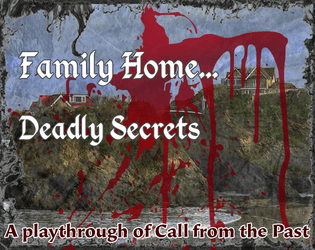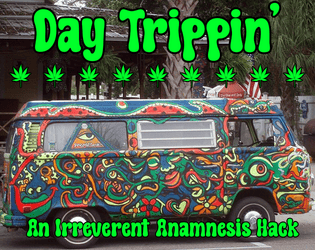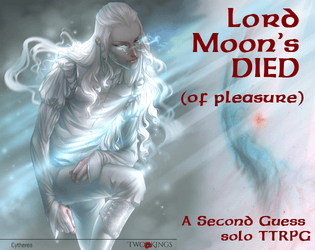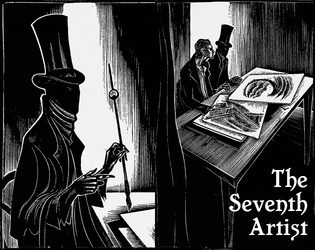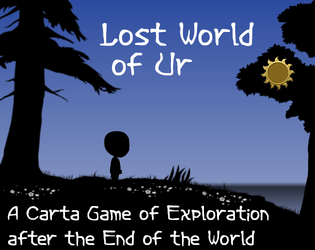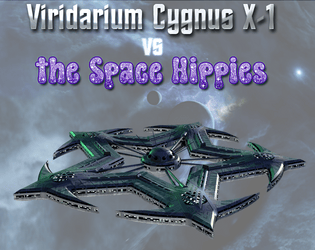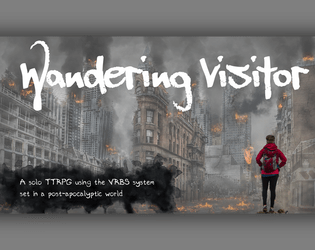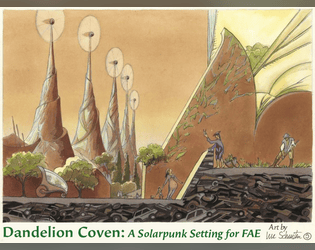"You act like using AI helpers is like asking the machine: hey google, make a video game and put my name under it."
That is exactly what vibe coding is for
Eris Lord Freedom
Creator of
Recent community posts
If you're using AI-generated materials - those can't be copyrighted. If you're claiming copyright on a game full of materials that are already in the public domain, you're scamming the people playing/buying the game.
And it's not unreasonable for people to want to know who made the game. There's a difference between "I made this game" and "I grabbed a bunch of free resources and had a bot write parts of this game for me."
If you made the game, and someone liked it, they're likely to enjoy your next game.
If you used a bot/AI generator to write code and generate the pictures... they may not care for your next game, because by that time, the AI software will have changed, and you have no control over what's available through it.
I suspect it's the opposite. In a few years, LLM and image-based AI-generated content will collapse because it's all funded by smoke and mirrors; there's no actual profit plan, especially since the content made by AI isn't protected by copyright.
(How many studios will release a movie that's in the public domain the moment it hits the screen? How many game devs want their logos and characters to be free for anyone to copy?)
We're seeing a huge amount of it right now because there are lots of free and low-cost AI generators available, but when the venture capitalist firms that were chasing NFTs realize that the general public isn't going to pay as much for AI generation than they do for human-made goods, and in many cases will refuse to pay for them at all, the bubble will burst and all the public AI tools will vanish.
There'll still be plenty of self-hosted LLMs and art generators, but without the power of Google or Microsoft's servers behind them, they won't have anything like the same capacity.
The Random Assets Flip Jam page is saved at the Wayback machine:
https://web.archive.org/web/20220116061715/https://itch.io/jam/random-asset-flip...
Ooh, so glad you're enjoying it.
If you want more visual resources, the original novel is at https://archive.org/details/godsmannovelinwo0000ward - I kept a very rough outline of the events but put a strong twist on the meaning. (...The original did not involve the fae at all.) There were a lot of other striking pictures that I didn't include but might be useful for exploring the story possibilities.
on reroll with a positive spin -
1. You have pinched an unpleasant spot only he is hyper-sensitive in a way that has cross-wired pain to pleasure momentarily. Also, Lord Moon is known to be a Kinky Bastard so it's up to you why he might decide he likes it this time.
13. Maybe you damaged something that was a gift from someone he hates. Or you damaged the same thing again, but he's already gotten angry at you and now he's just amused.
And there's always the option of "drag in another character" to add complications or a twist on what's happening.
You may need a good way to inform people about the bundle, because itch has removed a lot of bundles from the bundle search pages. The two currently featured bundles on the front page - Queer Games 2025 and the No ICE in California charity bundle - aren't findable on the bundle pages.
I normally check the co-op bundles page to find new ones before they get featured (and a lot never get featured); it looks like that may not work in the future. I'm guessing they've removed all bundles that include at least one shadowbanned game that has tags that Mastercard/Visa object to.
Please update something here or in the game jam description with a link to the final bundle. Search engines can find the game jam pages, and people can find the bundle from there if it's listed.
Thanks.
It's likely to be very important to find ways to inform people about bundles - the two currently featured on the front page aren't showing in the bundles pages at all. I regularly check the "co-op bundles" page for new ones, but I think they've removed all the bundles that include any games that are currently shadowbanned.
I assure you that many, many games are developed without any use of LLMs at all. That means they're not "essential."
The current tag is "AI-Generated Content." It sounds like you have some and therefore couldn't tag your content with "No AI." However, the new tag is only required for assets - not for ttrpgs or video games.
Protect the Child is a PbtA system in playtest; there are blank character playbooks as google spreadsheets for the current playbooks, and the option to make more.
GURPS is a longstanding not-indie game, very crunchy; the GURPS Lite is a condensed version of the rules and is free to download, and GURPS Character Sheet (GCS) is a fan-made app for building characters.
Puppetland is a creepy game with a sweet basic topic (you are all puppets; the Maker has died and you don't know what to do next). The original version (which is free) is old enough that the website carefully tells you what a PDF is and what software you need to read it.
They're on Kickstarter for another couple of weeks: https://www.kickstarter.com/projects/sjgames/fighting-fantasy-solo-adventure-gam...
The file shown here is an epub at 777 kb. The actual download is 85 mb, probably because it has 23 embedded fonts. (Four of them seem to be Noto's Japanese fonts, which are over 15 mb each. One more is a 10 mb unnamed font that's corrupt when extracted; looks like another Noto variant.)
Removing those knocks it down to a more reasonable 4.5 mb (there's still a lot of embedded fonts, but most of the rest are probably in active use, and I'm not taking the time to sort out the details) and doesn't seem to cause any problems.
Let me know if you'd like a copy of that one.
Bolero is in the public domain in Europe. Specific recordings are covered by a different law, as noted. It's possible the recordings are PD in Europe because of Life+70 laws. (Plus weird extensions. The owners/former owners of Bolero are fighting like the Doyle estate to keep it in their hands as long as possible.)
https://www.reddit.com/r/copyrightlaw/comments/mysehl/why_is_bolero_by_ravel_not...
https://www.techdirt.com/2016/05/04/copyright-holders-try-to-stop-ravels-bolero-...
Bolero was first recorded in 1928; it'll be a few years before that recording is public domain in the US.
NASA's "Astronomy Picture of the Day" goes back more than a decade. Not all the pictures are free to use - the majority are copyrighted - but anything created by NASA and government orgs is in the public domain, and some of them are gorgeous. Each picture has credits underneath; if it doesn't say copyright or license, it's free to use.
A few pictures:
There are also videos, and I'm pretty sure those run on the same system - if they just say "credit," they're made by the US gov't and are in th e public domain. But most of them are copyrighted.
I am waiting for Jan 1 to start the draft itch.io page because it occurred to me that the content I'm using is not yet in the public domain and even if I'm pretty sure it's fair use... I want to wait until it's clear before I upload anything, even the draft page layout.
So looking forward to this. I just need to find playtesters for a solo journaling game.


